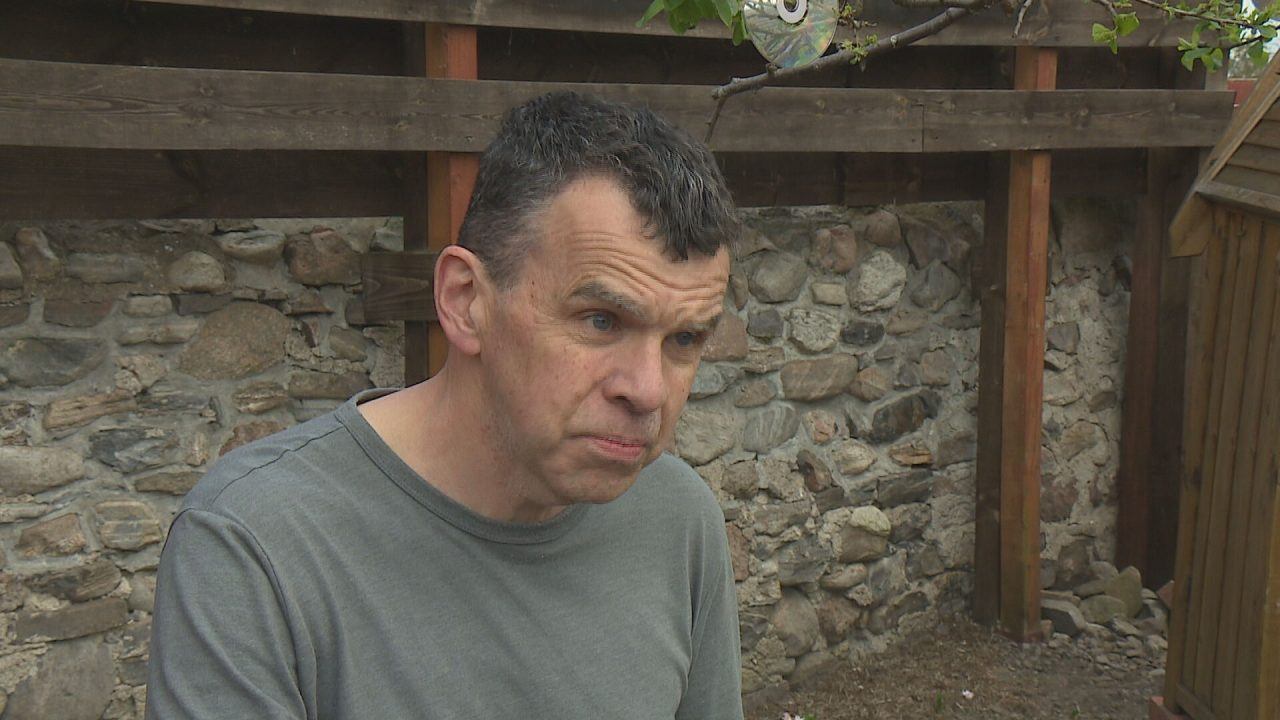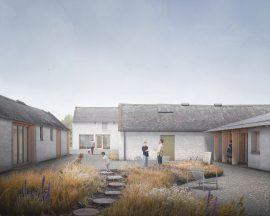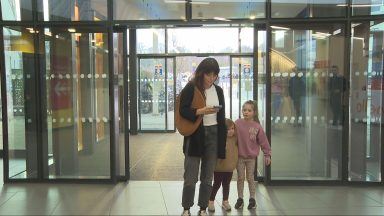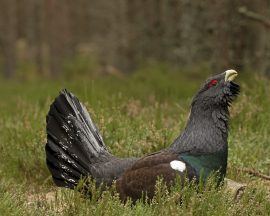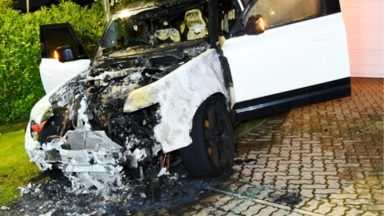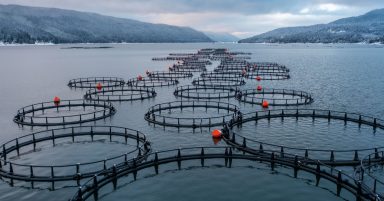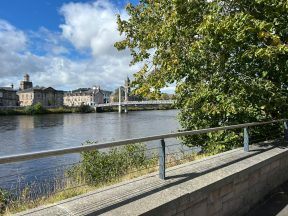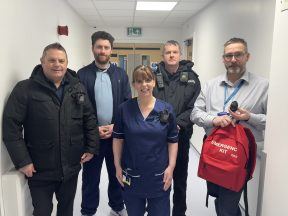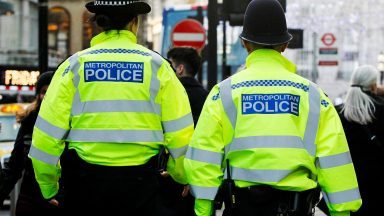A grandad who was among the first people to take part in a clinical trial for Huntington’s disease says it is “the best thing he has ever done“.
Retired railway signalman Sandy Patience, 65, was among only nine people in Scotland and 801 people globally with the degenerative condition who took part in the two year Roche Generation-HD1 study in 2019.
New research has found northern Scotland has one of the highest rates of Huntington’s disease in the world at 14.5 per 100,000 people, more than five times the estimated worldwide rate of 2.71 per 100,000 people.
There is currently no available treatment for Huntington’s – but it’s hoped trial drugs, such as antisense oligonucleotide (ASO) and pridopidine, could slow its progression and lead to a better quality of life.
Sandy, who lives in Inverness, was diagnosed with the condition in 2017.
He told STV News: “It’s such a big thing for people to not put off anymore. It’s not a death sentence. Look at me, I’m sitting here.
“It’s incredible, the strength I must have had.
“It was always something on my backburner. I was too busy living my family life.”
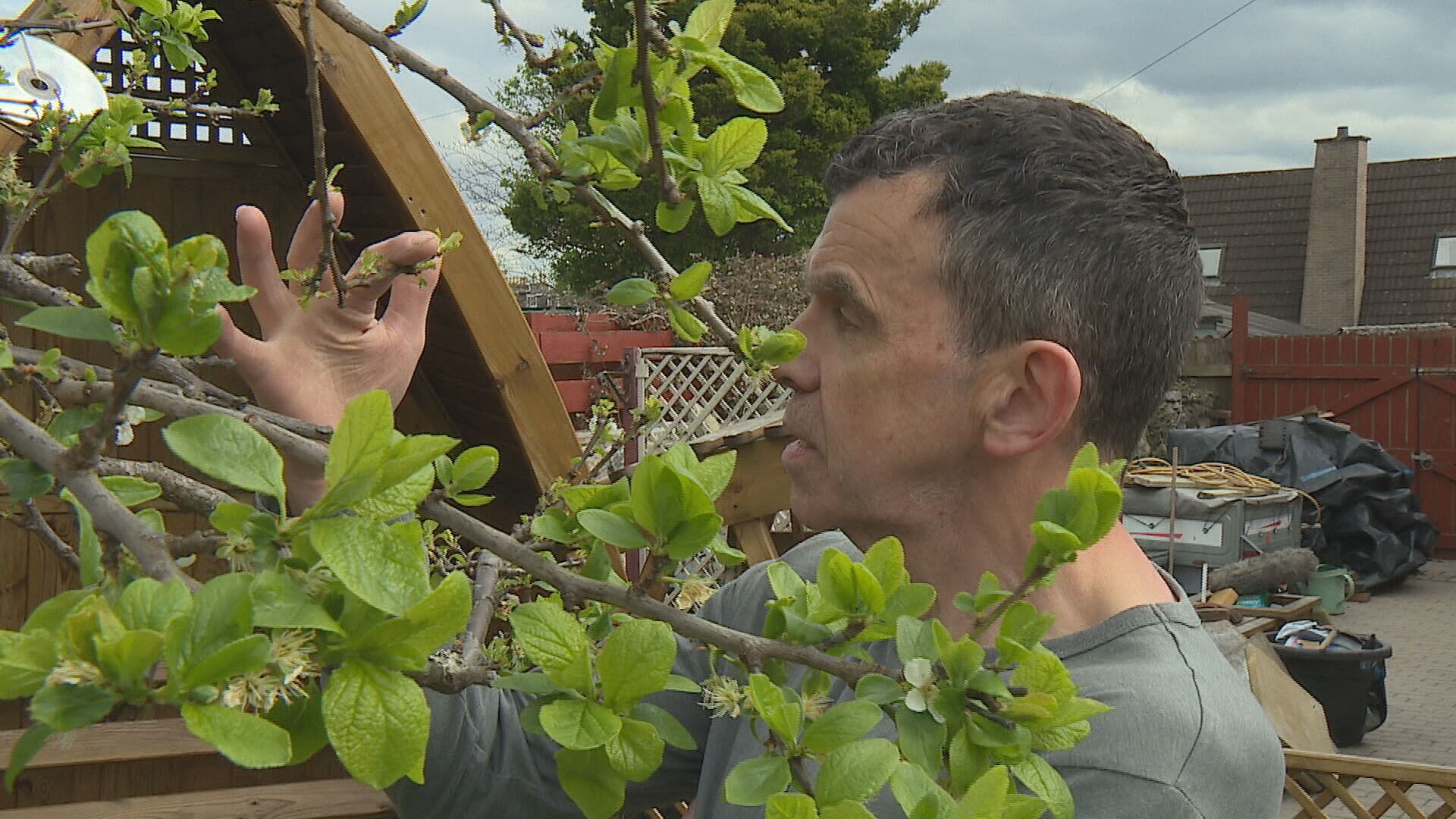 STV News
STV NewsThe number of people living in northern Scotland who have the gene that causes Huntington’s disease has been accurately counted for the first time in 35 years following research by the University of Aberdeen.
Huntington’s disease is an inherited condition that stops parts of the brain working properly over time.
The disease leads to increasing memory difficulties, psychiatric problems and twitchy movements that the person cannot control and is usually fatal around 20 years after it becomes obvious.
Researchers used NHS family-based records to find there are more than 160 adults living in Grampian, Highland, Orkney, Shetland, and the Western Isles who have the gene but have not been tested, and scientists believe the figure will be even higher as not everyone with symptoms seeks diagnosis.
Sandy says the disease has robbed him of many of his loved ones. His mum was 59 when she died from Huntington’s and his sister Helen died with the condition in 2020.
“It’s left a huge void. I was unable to love my mum, because she passed away young.”
He said being with his sister in her final years helped him come to terms with his own diagnosis.
“It was difficult to grasp,” he admitted. “But I remember lying in bed with my sister Helen, watching the awareness campaign with my arm around her.
“I said, ‘we’re the same, Helen, we’re no different’. She couldn’t speak but she was crying tears of joy. She got to hear it from my lips before she passed away.
“Testing is the best thing I’ve ever done. I’ve got (wife) Laura, my children and grandchildren to think about.”
Sandy described the wait for answers over his health as living in a “nightmare cloud”.
“It’s better to know. I’ve stood in it. Facing it head on,” he said.
“People who are thinking don’t give it a second thought, test. If it’s positive, it’s not the end of the world.
“There’s thousands that could be positive.
“It’s not going to change anything by not testing – it’s going to make it a million times worse.”
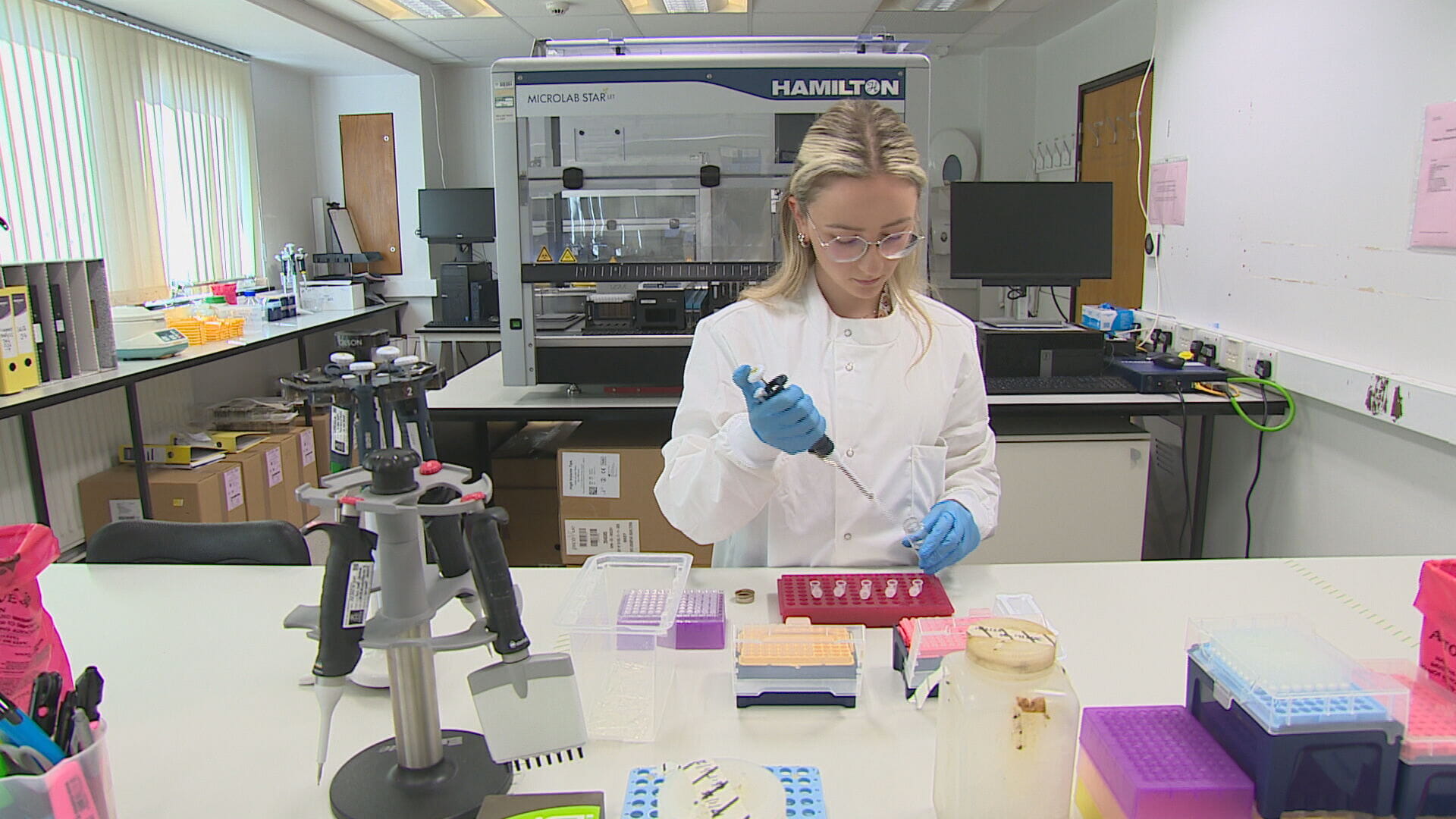 STV News
STV NewsThe research, led by Zosia Miedzybrodzka at the University of Aberdeen, aims to find out if gene-blocking compounds can slow progression of the disease.
Sandy has travelled every two months from his home in Inverness to Aberdeen Royal Infirmary, where a sample of his brain fluid is taken for analysis and a trial drug or placebo is administered.
He said it’s “incredible” how far research has come.
“There’s been so much progress in my lifetime. The more people testing now, the more it opens up research. It would take away the stigma.
“I’m breaking the mould – and it’s great. I’m proud to be sitting here. I’m so thrilled to be doing this for professionals.”
On average, every person who has been diagnosed with Huntington’s disease will have at least another 2.2 relatives who have the gene, meaning there are hundreds of people in northern Scotland who could be considered for effective treatments in the future, researchers said.
Every child of someone affected has a 50/50 chance of inheriting the neurodegenerative gene, which slowly damages the brain, taking away the ability to walk, talk, eat, drink, make decisions and live independently.
Sandy and his wife Laura said they were relieved to learn their daughter Kimberley tested negative for the gene, meaning her children will be free of the disease.
Laura said: “Definitely get the test. It’s important as it actually opens doors to different supports, benefits, and it also ensures that people know why you’re behaving in a certain way.
“People can understand how your thought process has changed and hopefully make allowances for it.
“Things have moved quite quickly – they’re not there yet but things are going in the right direction with all the research.”
‘Testing will help us find the light at the end of the tunnel’
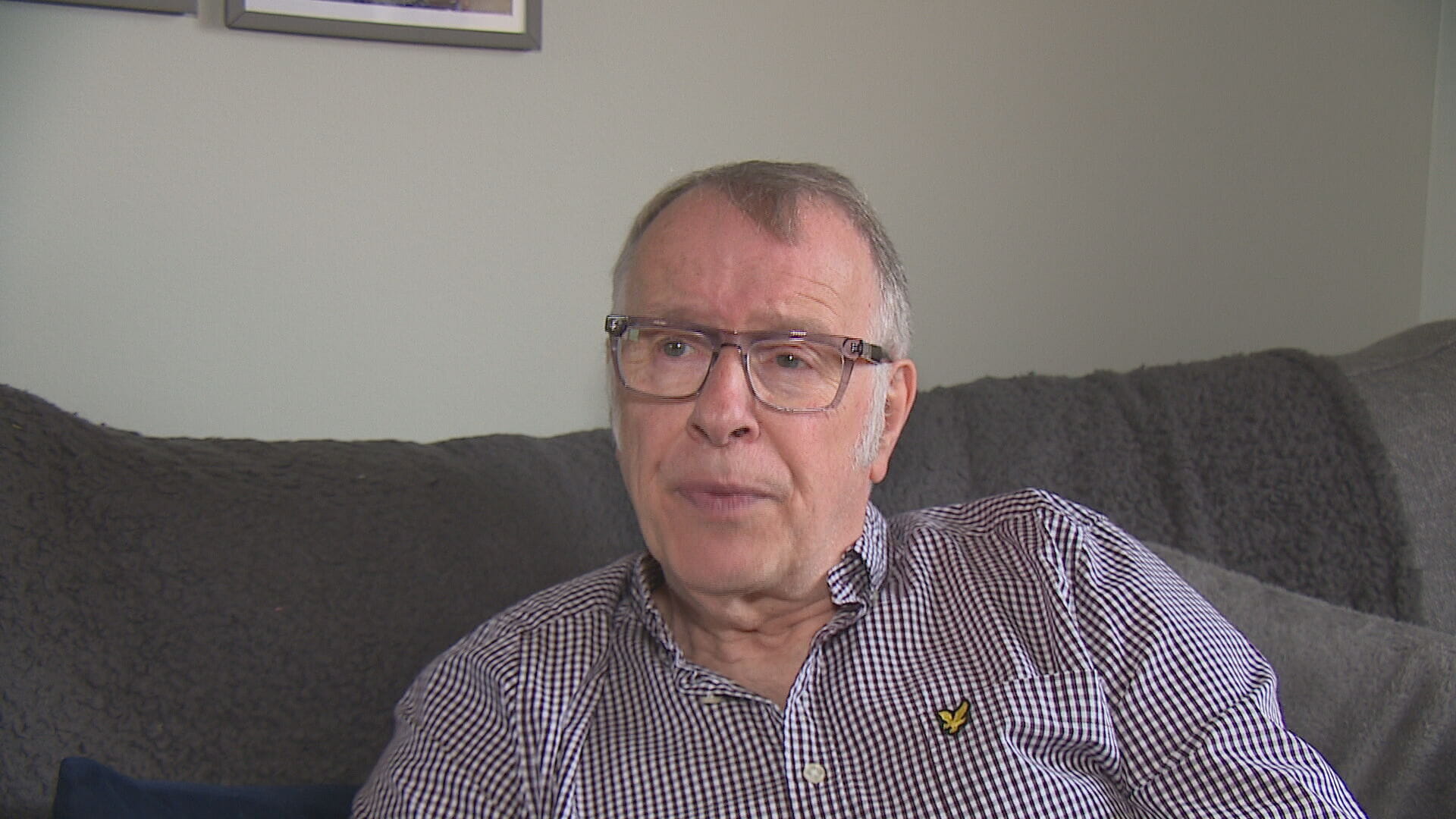 STV News
STV NewsBrian Watt from Moray decided to undergo genetic testing at Aberdeen Royal Infirmary in 2016.
His father died from Huntington’s in 1988 aged 60 after 12 years of living with the condition.
His sister, Brenda, a “super-fit” physiotherapist also passed away from after 17 years of fighting the disease.
He was “devastated” to learn that he was a carrier, despite being in good health.
“It came as a blow. It’s life-changing,” he said.
“The professor suggested I take a couple of days off – I went into shock. But I basically got on with it.”
Brian has been taking part in a drug trial that has helped slow down the progression of symptoms over the last three years.
It’s hoped the UK’s first licensed drug to treat Huntington’s will be made available in future.
“It does not repair any damage done previously, but it does plateau the effects of cognitive symptoms of Huntington’s,” he added.
Brian devotes himself to helping others in his community in his spare time. He launched a support group at a cafe in Elgin for people diagnosed with Huntington’s.
“We were expecting eight; 32 people turned up,” he added.
Brian also says a healthy lifestyle is “key” to living with Huntington’s. He spends time with family, takes his dogs on long walks every day and works at the Moray Motor Museum.
“The brain is a muscle; you’ve got to keep it going. This type of brain disease, it’s so easy to lie in bed and feel sorry for yourself. Get up, shower, and do something every day.
“I’m the type of guy, it’s not good for me to just sit and dwell – I need to be active.”
Brian made a plea to Scots to get tested and help researchers develop medicine to help people with the condition.
“Definitely get the test – it helps professors. The more people who know they are positive or at risk, part of the justification for the drug is the cost.
“The more people out there who know, the scale of the drug will reduce the cost.
“The last few years have not been good for patients or families. Because five years ago, medical people said it’s a hard condition to crack, they don’t know if we’ll ever get a cure.
“For us to know that there is a potential treatment, it’s a light at the end of the tunnel.”
‘It’s helping us count the uncounted’
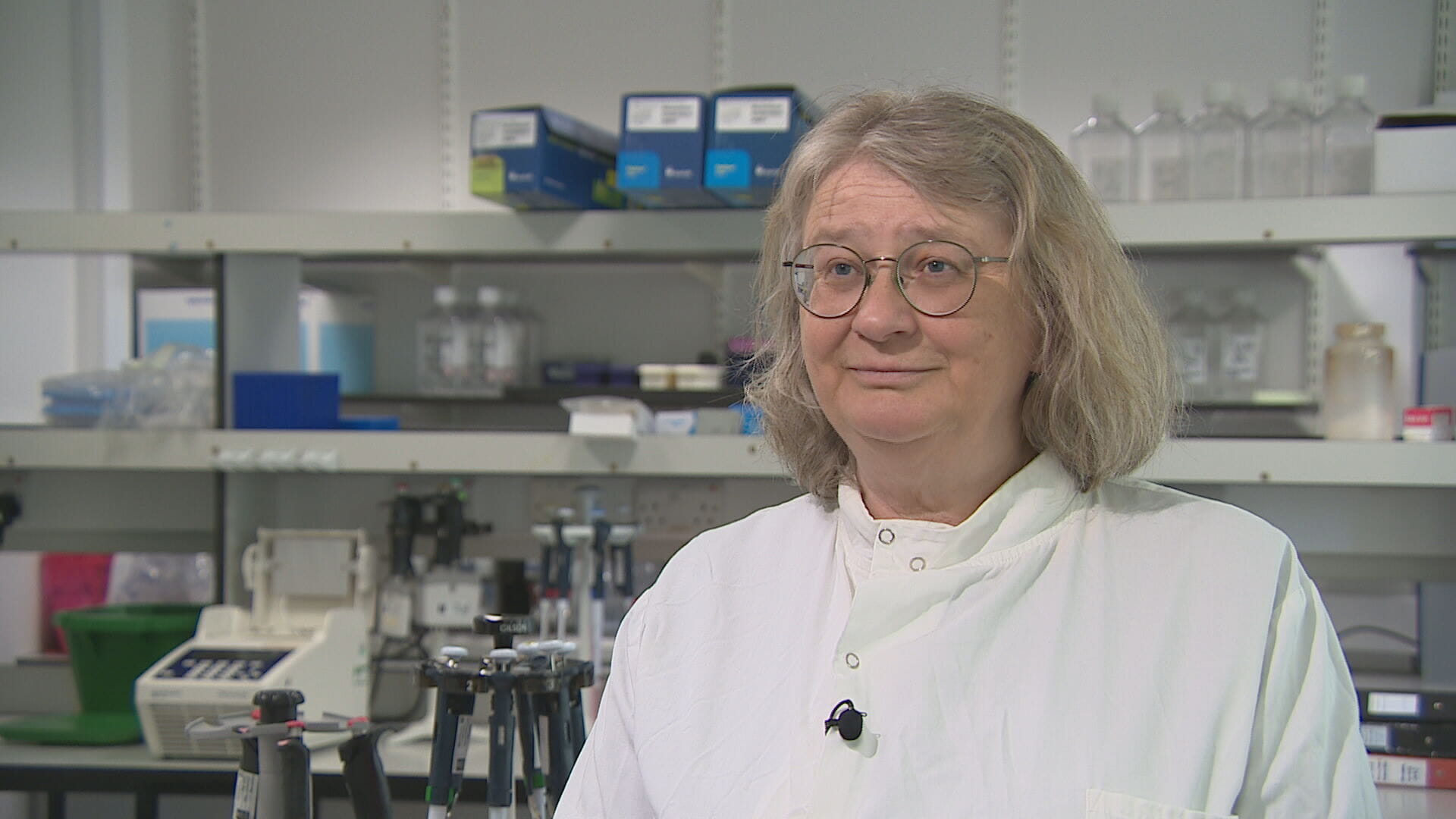 STV News
STV NewsZosia Miedzybrodzka, study lead and professor of medical genetics at the University of Aberdeen, said around eight per 100,000 people in the North East have had a test but haven’t developed symptoms yet.
Their work has found that for every person with symptoms of Huntington’s, 2.2 family members will carry the gene.
She said it’s crucial to determine the number of people untested who must have the gene so that health boards can plan for care in the future.
“The beauty of this piece of work is being able to count the uncounted so far without having to test anybody.
“There are adults who know about it in their family, have a 50/50 chance of getting it, choose to open the box and look inside,” she said.
“Many people grow up knowing their chances of Huntington’s and don’t want to know, and that’s fine, because if there’s no specific care for them you could argue there’s no benefit for knowing.
“Going forward, we’re hopeful there will be treatment to help those people, but we will probably have to provide that care before symptoms develop.
“So, we need to plan for the future and understand how many people will need that type of care, if the research goes as we hope it will.
“As we move forward, we expect more people will come for testing if they know there is treatment available.”
Commenting on the findings of the study Chief Executive Officer of Scottish Huntington’s Association, Alistair Haw, said: “Earlier this term a Scottish Parliament motion calling for an expansion of specialist Huntington’s disease services in light of rising cases became the most supported motion in the history of devolution. This latest study further strengthens the case for immediate action to expand specialist services for families impacted by Huntington’s.
“Huntington’s disease is a hugely complex, widely misunderstood and extremely difficult to manage condition. Specialist services are not some nice to have optional extra but an absolute necessity to reduce patients reaching crisis point and presenting to acute emergency statutory services. According to the Journal of Huntington’s Disease, Huntington’s Disease Specialists reduce hospital admissions by 54%. Specialist Huntington’s services need to be expanded urgently – a message further reinforced by this new and clear evidence which has major implications for health and social care providers throughout Scotland.”
Follow STV News on WhatsApp
Scan the QR code on your mobile device for all the latest news from around the country


